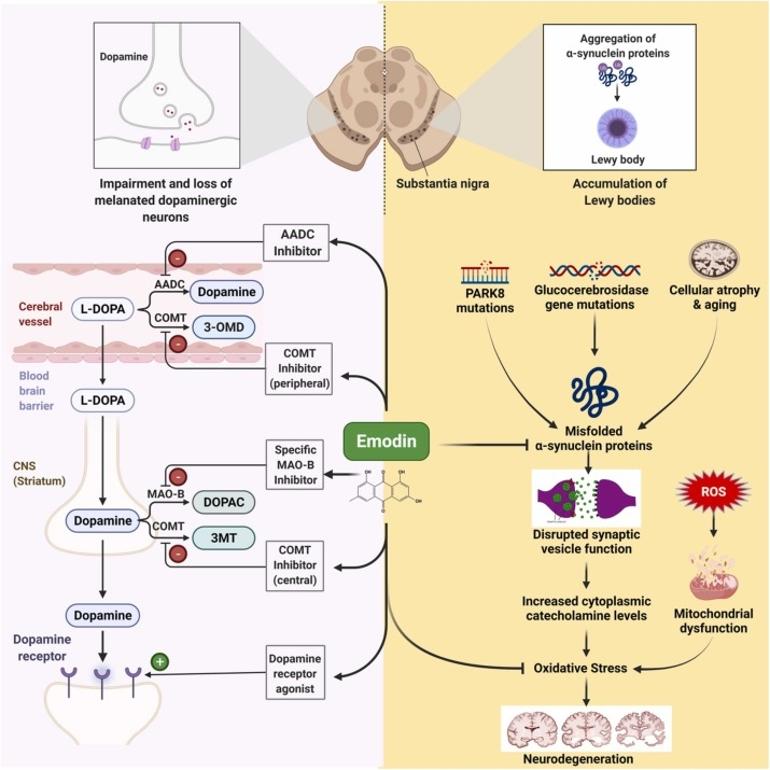I really want to transition from research to recovery, but this does look interesting: Exploring the journey of emodin as a potential neuroprotective agent: Novel therapeutic insights with molecular mechanism of action 2022 sciencedirect.com/science/a...
I found Emodin because it inhibits EBV: pdfs.semanticscholar.org/06...
But it seems to do so much more. Just scroll down to "6.2. Parkinson's disease"

